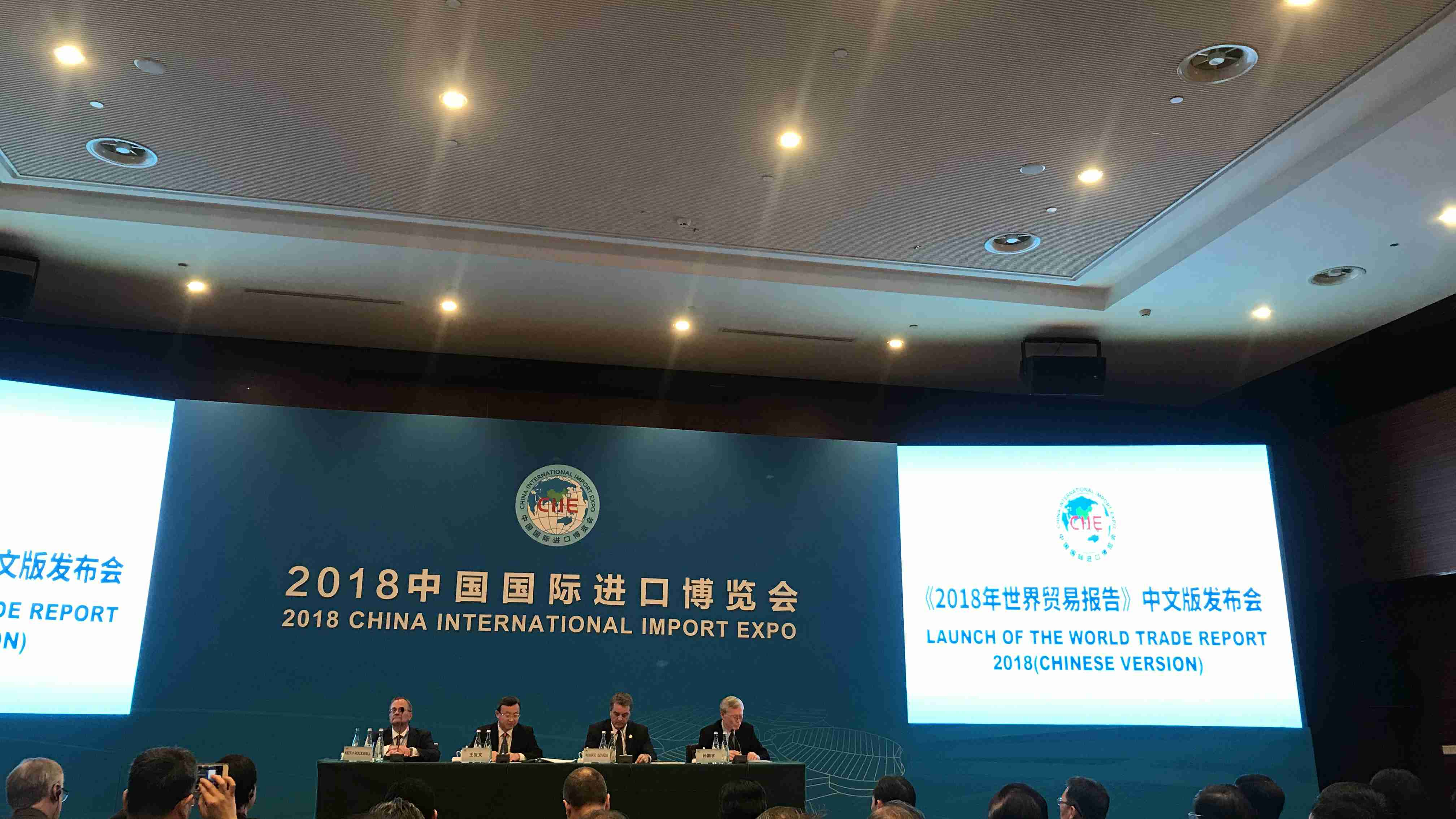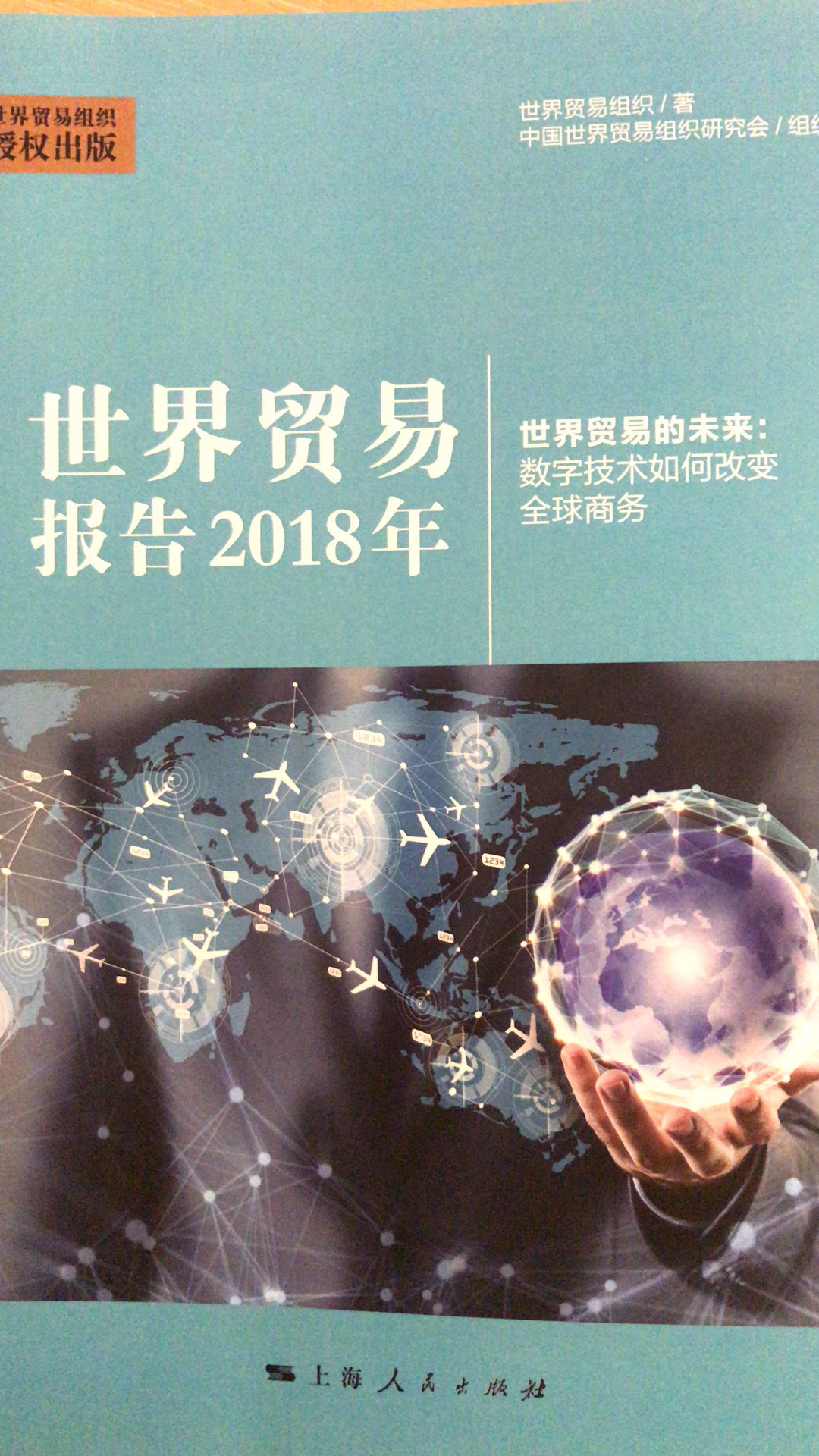
Business
22:24, 05-Nov-2018
WTO publishes Chinese version of 2018 World Trade Report at CIIE
Updated
21:54, 08-Nov-2018
CGTN

China firmly supports the WTO (World Trade Organization), and is prepared to join hands with other members to bring about a more productive and effective WTO, Wang Shouwen, Vice Minister of Commerce of China and deputy China international trade representative said on Monday.
Wang was speaking at a press conference marking the launch of the Chinese version of the WTO's World Trade Report 2018, during the China International Import Expo (CIIE) in China's commercial hub Shanghai.
“The 2018 World Trade Report examines how digital technologies are transforming global commerce,” Roberto Azevedo, Director-General of the WTO said.

WTO publishes Chinese version of 2018 World Trade Report at CIIE. /CGTN Photo
WTO publishes Chinese version of 2018 World Trade Report at CIIE. /CGTN Photo
“The Internet of Things, artificial intelligence, 3D printing and Blockchain have the potential to profoundly transform the way we trade, who trades and what is traded,” he wrote in the foreword of the report.
According to the report, the advance of digital technologies will also bring about changes in the structure of trade.
“Beyond easing trade in goods, digital technologies can facilitate services trade and enable new services to emerge,” says the report, which predicts that the share of services in trade could grow from 21 percent to 25 percent by 2030.
Meanwhile, the report shows the impact of technological advances in cutting trade costs.
“Between 1996 and 2014, international trade costs declined by 15 percent.” said Robert Koopman, Director of WTO Economic Research and Statistics Division. Technological innovation played an important role, said Koopman, who concluded that it has the potential to do even more.
The report finds that the decline in trade costs can be especially beneficial for micro, small and medium-sized enterprises.
“Developing countries' share in global trade could grow from 46 per cent in 2015 to 57 per cent by 2030,” said Koopman.

SITEMAP
Copyright © 2018 CGTN. Beijing ICP prepared NO.16065310-3
Copyright © 2018 CGTN. Beijing ICP prepared NO.16065310-3